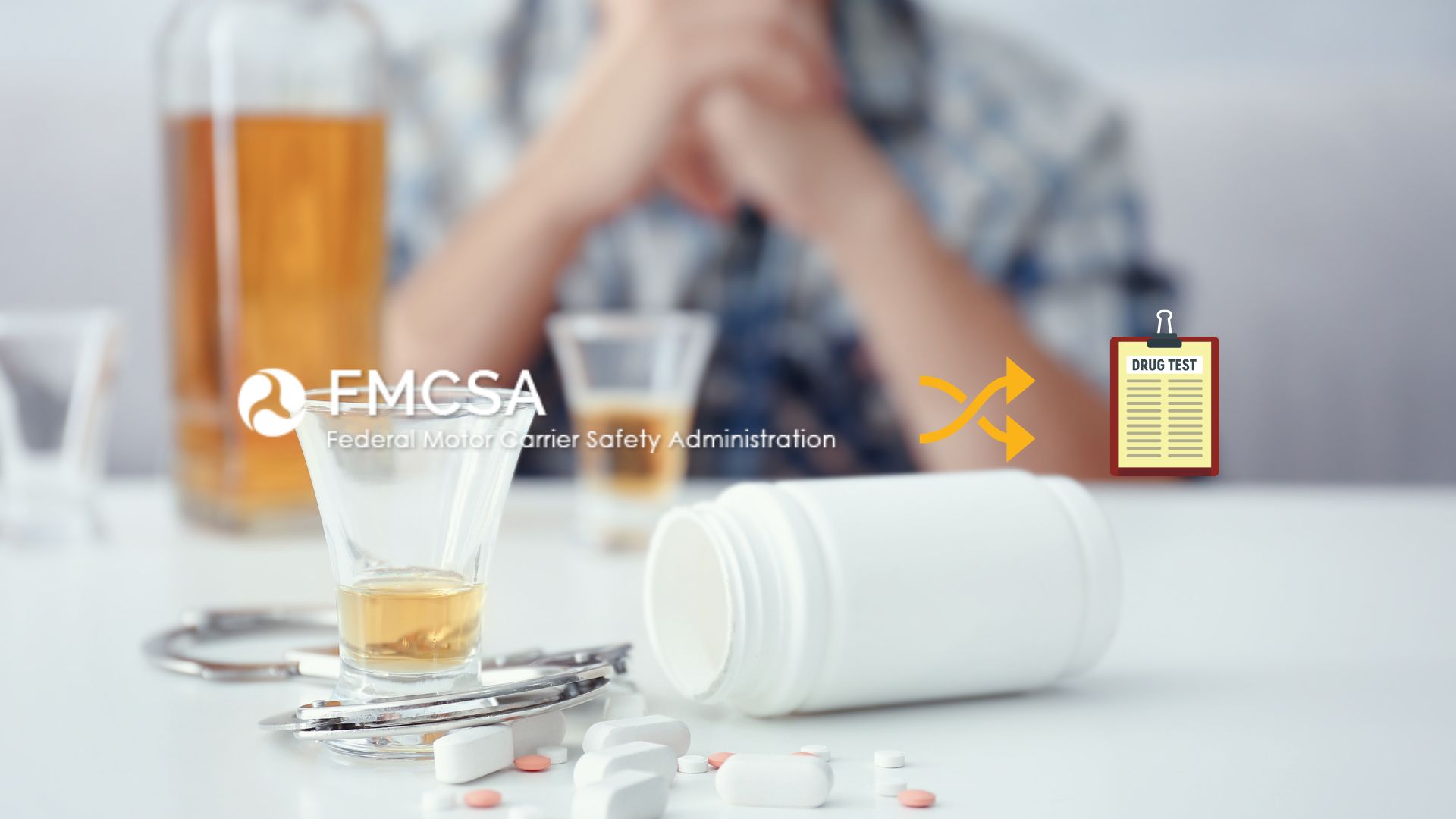
Why does the FMCSA require random alcohol testing for CDL drivers?
The mandates random alcohol testing to help ensure safety-sensitive commercial drivers do not operate vehicles under the influence, reducing risk of accidents, injuries, and fatalities on public roads.
Which employers must perform random alcohol testing under FMCSA rules?
Employers of drivers in safety-sensitive functions subject to CDL and part 382 (ex: operating commercial motor vehicles requiring a CDL) must participate in the FMCSA random alcohol testing program.
What is the minimum random alcohol testing rate required by FMCSA?
The FMCSA sets a minimum annual random alcohol testing rate (which may vary; currently it is 10 % of the average number of safety-sensitive employees subject to the alcohol testing program).
How are drivers selected for random alcohol testing?
Selection must be made by a scientifically valid method (e.g., electronic random number generator) and tests must be unannounced, spread evenly throughout the year.
What happens if a driver refuses or fails a random alcohol test?
A refusal to be tested or a confirmed result of 0.04 BAC or higher triggers the return-to-duty process, disqualification from safety-sensitive duties, and entry into follow-up testing.
Are owner-operators subject to FMCSA random alcohol testing?
Yes — owner-operators performing safety-sensitive functions (CDL operations) must either join a consortium or have their own program to satisfy FMCSA random alcohol testing requirements.
What are the key benefits of random alcohol testing for carriers?
Random testing acts as a deterrent, helps maintain a safer fleet, provides documentation of compliance to regulators and insurers, and can reduce liability and risk exposure.
How should carriers integrate random alcohol testing into their safety program?
Carriers should include random testing in their written drug alcohol policy, ensure payroll/employment data is accurate, notify drivers of selection, schedule test collection at DOT-certified sites, and maintain records for 5 years per regulation.

An essential function of the Federal Motor Carrier Safety Administration (FMCSA) is to regulating safety in the trucking and transportation industry. One of the key safety measures mandated by the FMCSA is random alcohol testing for commercial drivers. But why is random alcohol testing required, and how does it benefit both the industry and the public?
The FMCSA’s main goal is to bring down the number of heavy truck and bus-related crashes, injuries, and deaths. Cars used for business purposes (CMV) drivers have a great responsibility to operate their vehicles safely, given the size and weight of the trucks they drive. Alcohol impairment can severely reduce a driver’s ability to make sound decisions and react to potential hazards, creating a dangerous situation for both the driver and others on the road.
Under 49 CFR Part 382, the FMCSA mandates that employers of CMV drivers conduct random alcohol testing. This testing is not announced in advance, and drivers are chosen randomly throughout the year. This unpredictable nature of the testing is key to its effectiveness, as it deters drivers from consuming alcohol at any time while on duty or shortly before driving.
The FMCSA’s random alcohol testing rate is currently set at 10% of the average number of drivers in a given year. Employers must ensure that their drivers carry an equal possibility of being chosen for testing.
FMCSA regulations apply to safety-sensitive employees. This includes any employee who operates a CMV that requires a commercial driver's license (CDL). These employees are responsible for safely operating commercial vehicles and must comply with strict alcohol and drug use regulations. Drivers are prohibited from with a blood alcohol content of 0.04 or higher while on duty.
Related: How Breath Alcohol Test is Performed?
The primary purpose of random alcohol testing is to maintain road safety by preventing alcohol-impaired driving. Here are several key reasons why random testing is vital:
Employers are required to have a written policy regarding alcohol testing. This policy must comply with FMCSA rules and clearly outline the random testing process. Employers can either manage the testing program themselves or use a Consortium/Third-Party Administrator (C/TPA), which pools multiple companies together to administer testing.
When selected for a random test, drivers are notified by their employer and must report to a testing site immediately. The alcohol test is typically conducted using a breathalyzer, and the result is obtained in real-time. If a driver tests positive (an alcohol concentration of 0.04 or higher), they are immediately removed from jobs that require a high level of safety and must go through return to duty process includes a Substance Abuse Professional (SAP) examination and follow-up testing that is done by a CTPA before being allowed back on the job.
Related: Top Factors Employers Consider When Choosing a C/TPA
Employers who do not comply with FMCSA's random alcohol testing requirements face serious consequences. Penalties may include:
For drivers, the consequences of testing positive are equally severe, often resulting in job loss, mandatory rehabilitation, and restrictions on their ability to operate CMVs in the future.
Random alcohol testing isn’t just about compliance—it’s about saving lives. Alcohol-related accidents can have devastating consequences, and the FMCSA’s guidelines help minimize these risks. By deterring alcohol misuse and ensuring that impaired drivers are identified before they cause harm, random alcohol testing plays an essential role in keeping U.S. highways safer.
Employers, drivers, and the public all benefit from the FMCSA’s rigorous commitment to safety. For employers, it means staying compliant and maintaining a good reputation. For drivers, it’s about maintaining a safe, healthy work environment. And for the public, it means safer roads for everyone.